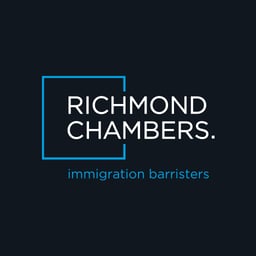News and developments
Meeting the financial requirement for a UK spouse visa as a returning spouse - Part 2
This post follows our previous post about meeting the financial requirement for a spouse visa for couples returning from overseas to live in the UK. In this follow-up post, we take a more detailed look at how the requirement can be met through the Sponsor’s employment or self-employment. The rules are both forward-looking and backward-looking.
Step 1: looking back to income already earned
The rules are different depending on whether the Sponsor is still in employment on the date of application, and if so, whether the Sponsor has been with their current employer for 6 months or more.
Currently in employment, and has been with the current employer for 6 months or more
Salaried employment
If the Sponsor is in salaried employment overseas at the date of application, and has been employed by the same employer for at least 6 months prior to the date of application, then the salary that they have been receiving can be relied on, even though this was earned outside the UK. The Sponsor must have been paid throughout the period of 6 months prior to the date of application at a level of gross annual salary which equals or exceeds the level relied upon in the application. For a partner without dependent children, if relying only on income from employment, this amounts to a minimum salary of £18,600 annually (although this amount will be calculated differently if employment income is being combined with any other type of income, or if a partner has dependent children).
Non-salaried employment
Income from employment overseas does not have to be in the form of a salary. For non-salaried employment, the average annual income can be calculated by simply doubling the total gross income earned during the 6-month period leading up to the date of application. For a partner without dependent children, if relying only on income from employment, this would be a minimum income of £18,600 annually (or £9,300 during the 6 months leading up to the date of application).
Self-employment
If the Sponsor is self-employed, they can still rely on work undertaken overseas to meet the financial requirement, as long as the couple meet the requirement in paragraph E-LTRP.1.10 of Appendix FM (that they intend to live together permanently in the UK).
In terms of calculating the annual income, a self-employed Sponsor has two options. They can use their total income from the last full financial year to meet the requirement. Alternatively, if they wish, they may use a yearly average of the income received in the last two full financial years.
The relevant financial year will reflect the requirements of the taxation system of the country where the self-employment took place (rather than the UK financial year, which runs from 06 April to 05 April the following year).
This income can be combined with other sources of income (such as salaried or non-salaried employment, non-employment income or pension income), but all these sources of income must fall within the same financial year as the self-employed income, and must still be a source of income at the time of the application.
Not in employment at the date of application, or has not been with current employer for 6 months or more
If the Sponsor is not in employment, or has not been employed with their current employer for 6 months or more, their income during the 12 months leading up to the date of application can be considered. During this 12-month period, the Sponsor must have received the minimum amount necessary to meet the financial requirement. This income can be through any kind of employment: salaried, non-salaried or self-employment.
For all types of employment overseas, income in a foreign currency can be converted to pounds sterling (£) using the closing spot exchange rate which appears on www.oanda.com on the date of application.
Step 2: looking forward to future earnings in the UK
Regardless of the Sponsor’s employment status at the date of application, they will also have to meet a second requirement involving their future in the UK. They must have a confirmed offer of salaried or non-salaried employment to which they will return in the UK. The employment must start within 3 months of their return. If the employment is salaried, it must have a gross annual starting salary sufficient to meet the level of financial requirement relied on. If the employment is non-salaried, the employer must provide evidence that the Sponsor will have a gross annual income sufficient to meet the level of financial requirement relied on. This will be based on the amount of pay and the standard or core hours to be worked by the Sponsor. A letter from the employer must be provided, confirming the job offer, salary and starting date of the role (which must be within 3 months of the Sponsor’s return to the UK), as well as the signed contract of employment.
A Sponsor who is self-employed overseas, and who is relying on their self-employment to meet the backward-looking part of the requirement, can rely on continuing their self-employment in the UK in order to meet the forward-looking part of the requirement. They must provide evidence that their self-employment is ongoing and will be continuing in the UK. This can be in the form of an application to the appropriate authority for a licence to trade, details of the purchase or rental of business premises, a signed employment contract or a signed contract for the provision of services, or a partnership of franchise agreement signed by the relevant parties to the agreement.
Contact our Direct Access Immigration Barristers
For expert advice and assistance regarding an application for a UK spouse visa, contact our direct access immigration barristers in London on 0203 617 9173 or complete our enquiry form below.
